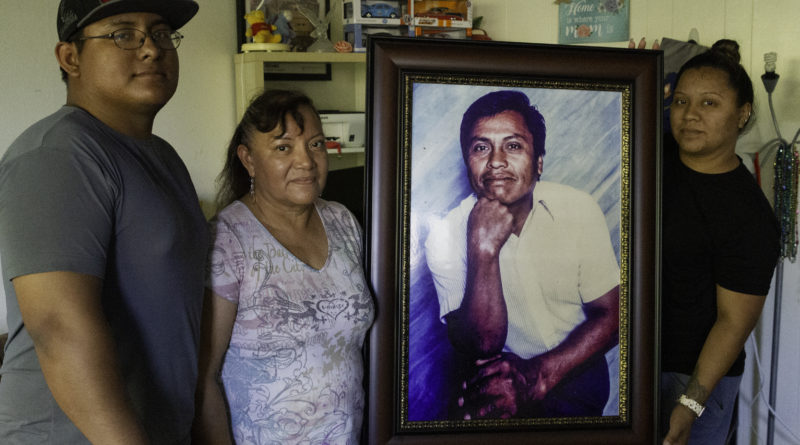North County Family Left In Hardship After Losing Breadwinner To COVID-19
Angelico Maldonado died Aug. 22 from damages left behind by COVID-19. He spent six weeks on a ventilator before his family made the decision to disconnect it.
He recovered from COVID-19 but died from lung damage caused by the coronavirus.
A husband, father, and grandfather, Maldonado left behind a family that depended on him to make ends meet.
“My father was 68 years old. Retirement was not an option, at least not for him,” said his daughter, Carmen Maldonado.
Originally from Oaxaca, Mexico, Maldonado came to the U.S. 35 years ago, settled in Vista and worked more than 25 years in the San Diego roofing industry.
But he came to the country illegally, and was uninsured when the pandemic hit. As with many Latinos, the fear of being deported and the cost of medical care made him hesitant to seek help. This fear has been one the many factors driving up the number of COVID-19 cases in the Latino community.
“We’ve seen the Latino community completely devastated in terms of positive cases that have been identified, with cases being close to 71% of cases that are positive in the Latino community,” said Roberto Alcantar, chief strategy officer for the Chicano Federation. “Yet the Latino community is about 34% of the population in San Diego County.”
Alcantar said there are other factors contributing to the high number of positive positive cases. Among them: Latinos work more front-line jobs and frequent public transportation; they may also have underlying health conditions and lack access to health care; and often live in multi-generational households.
Maldonado met all those criteria. As a roofer, he frequently interacted with many different people. He was diabetic, had no access to health care, and lived with his wife, children, and grandchildren. All of these elements made him more susceptible to catching COVID-19.
As the main breadwinner in the household, Maldonado remained at work during the restrictions as roofing jobs got busier.
It’s not uncommon for Latinos to continue working through the pandemic restrictions, Alcantar said. These are cases the Chicano Federation often faces when helping families navigate the burdens of the pandemic.
“We see that every day,” he said. “We talk to folks who are these essential workers, who say, ‘I’m sorry but I have no choice. If I don’t work today, I might not be able to pay rent tomorrow.'”
“We have nothing built here”
A recent SANDAG report identified rent, food, utilities, transportation, and childcare expenses as just some of the top needs of San Diego households. The families who shared their experiences in the report said they were already struggling in many ways before the pandemic began. The majority lived in communities hardest hit by the pandemic, both financially and by high rates of COVID-19.
In July when Maldonado, his wife, and several family members were diagnosed with COVID-19, they had to pay out of pocket to see a doctor and get tested because they had no insurance. Each paid approximately $160 to see a doctor they trusted, who wouldn’t ask about immigration status and who provided results the same day.
That is when the financial stress began for the Maldonado family. After diagnosis, everyone in the family was forced to be out of work for one month and remain in quarantine.
“This was definitely not something we were planning on going through,” said Carmen Maldonado.
Maria de los Angeles, Maldonado’s wife, said, “Latino families like us live day by day just to pay rent, pay bills. We don’t have enough left over to save money. Now for me, it’s going to be more difficult because my partner is gone.”
Angeles is a legal U.S. resident. She has returned to work as a seamstress on Camp Pendleton, but said she has faced discrimination after being diagnosed with COVID-19.
“People think we are still contagious,” she said. “They ask us to stay away and wear a mask. They think we are going to give it to them. We are clean now.”
Angeles and Maldonado planned to return to Oaxaca in January to retire. Those plans have now changed, forcing Angeles to depend on her children for financial support.
“It’s a shame, after all the years of working here, we have nothing built here,” Angeles said.
FEATURED PODCAST
To view PDF documents, Download Acrobat Reader.














